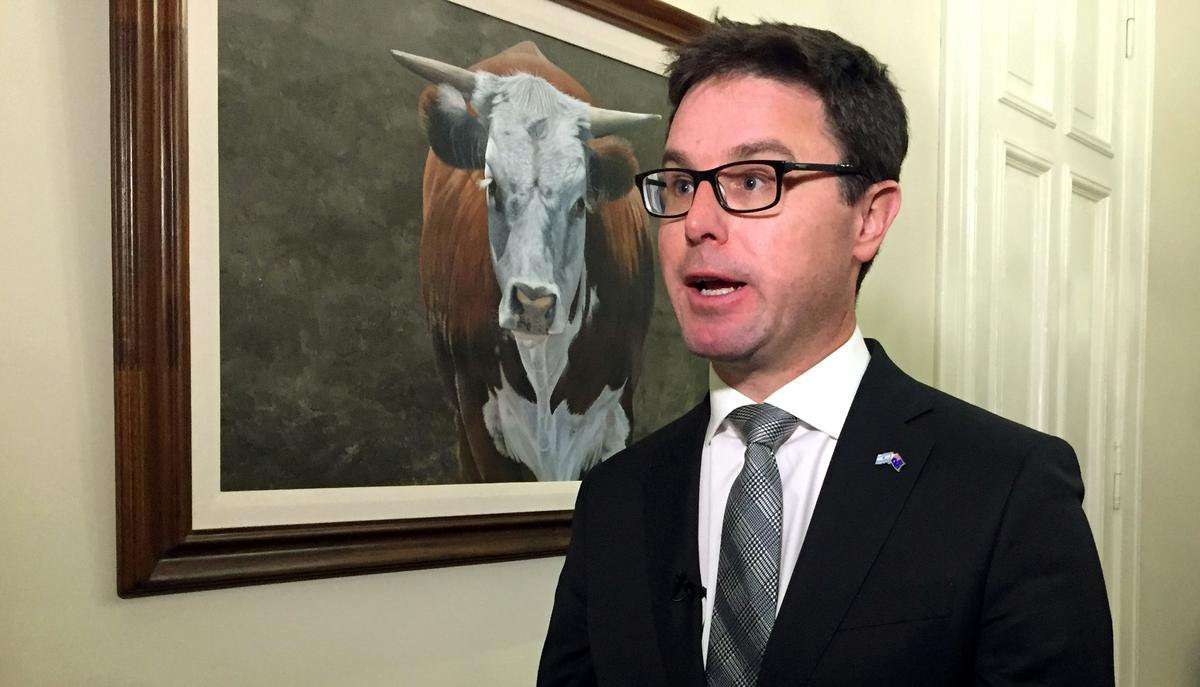SYDNEY (Reuters) - All member nations of the World Health Organization (WHO) should support a proposed independent review into the coronavirus pandemic, Australia’s Prime Minister Scott Morrison said on Thursday, further threatening strained ties with China.
Australia has become one of most forceful critics of Beijing for its handling of the spread of the coronavirus, with Morrison urging several world leaders to support an international inquiry into its origins and spread, as well as the WHO’s response.
The COVID-19 outbreak originated in China and has since spread to infect some 2.3 million people globally and killed nearly 160,000, according to Reuters calculations. Beijing has fiercely rejected calls for an inquiry, describing the efforts as U.S.-led propaganda against China.
Morrison said all members of the WHO should be obliged to participate in a review, adding that Australia would push for the inquiry during the WHO Assembly on May 17.
“We’d like the world to be safer when it comes to viruses... I would hope that any other nation, be it China or anyone else, would share that objective,” Morrison told reporters in Canberra.
China is Australia’s largest trading partner, but diplomatic ties have frayed in recent years amid allegations Beijing has committed cyber-attacks and has attempted to interfere in Canberra’s domestic affairs.
Related Coverage Australia to pursue coronavirus investigation at World Health Assembly
“The so-called independent inquiry proposed by Australia is in reality political manipulation,” said China’s foreign ministry spokesman Geng Shuang, speaking at a daily news briefing in Beijing on Thursday. ...
“We advise Australia to give up its ideological prejudices,” he said.
Australia’s calls for an inquiry will win favour with the White House - which has been critical of China and the World Health Organization’s handling of the pandemic, and has withdrawn U.S. funding from the U.N. agency.
China said on Thursday it will donate an additional $30 million to the WHO.
There also seems to be less enthusiasm for an inquiry in Europe, with both France and Britain saying now is not the time to apportion blame.
Germany’s Angela Merkel said Thursday that the WHO is an “indispensable partner” and the country supports its mandate.
FILE PHOTO: Australian Prime Minister Scott Morrison speaks during a joint press conference held with New Zealand Prime Minister Jacinda Ardern at Admiralty House in Sydney, Australia, February 28, 2020. REUTERS/Loren Elliott
Morrison’s comments came just hours after a senior Australian government official called on G20 nations to end wildlife wet markets over concerns they pose a threat to human health and agricultural markets.
The outbreak in China was thought to have started in a wet market in the city of Wuhan. Wet markets are a key facet of China’s daily life, though not all sell wildlife.
China imposed a temporary ban on selling wildlife on Jan. 23 and is now reviewing its legislation to restrict commercial wild animal trading on a permanent basis.
Minister for Agriculture David Littleproud said on Thursday he had asked government officials from the Group of 20 major economies to back a plan to end wildlife wet markets.
U.S. officials have also called for wildlife wet markets across Asia to be closed. Wet markets exist throughout Asia selling fresh vegetables, seafood and meat, with some also selling exotic animals.
Australia’s call for global action comes as it successfully slows the spread of coronavirus, with new infections well below 1% a day. Australia has about 6,600 cases of coronavirus and 76 deaths from the virus.
FILE PHOTO: Australia Agriculture Minister David Littleproud speaks during an interview with Reuters ahead of the G20 Meeting of Agriculture Ministers in Buenos Aires, Argentina, July 25, 2018. REUTERS/Miguel Lo Bianco
Around a third of Australia’s cases can be traced to cruise liners and one ship, the Ruby Princess owned by Carnival Corp, is responsible for about 10% of cases.
Authorities granted the Ruby Princess permission to disembark its 2,700 passengers last month without health checks, and police are how investigating whether the ship’s operators knowingly let coronavirus patients disembark.
The Ruby Princess, which has been in Australia since March, is expected to depart on Thursday with just crew, though it is unclear where it will go.

inside_out_man on April 23rd, 2020 at 09:17 UTC »
Ban not reading the article and commenting. Helps avoid drivel (including this post). Investigation into the origin and broader research into types of markets sounds like whats being advocated not whole sale banning of ill defined 'wet market' such as most people in the thread seem to be deliberating.
drunkill on April 23rd, 2020 at 07:08 UTC »
Australia has wet markets too.
We also have health inspectors.
Edit: Well this blew up.
I was implying that the terminology needs to be sorted. Wet markets exist all over the place, in parts of china they have unusual animals because there is a lack of food security.
Australia does live export too, which has been called for banning for quite some time.
But yes, China really needs regulation, across all sectors.
tvuspen on April 23rd, 2020 at 06:32 UTC »
It would be nice for there to be some definition of what a wet market is. The closest think to a definition in that article is:
So does that include the local deli which includes fresh seafood? If so I guess we've gotta close every Coles and Wollies in the country.
Or is it just markets other than supermarkets? ie the Sydney fish market (that every news show had to talk about a least once per hour over easter)?
Maybe the better definition is wet markets that sell meat not generally consumed in western cuisine. But then the arrogance of the suggestion is too obvious.